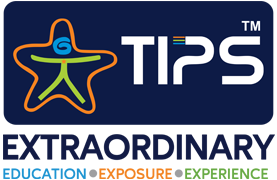- Blog By
Ms. Sumita Sen Mazumdar
Erode – KG Academic Coordinator
The Indian Public School
June 15, 2020 | In Blog 
How we used to do things
There was a time when – if we wanted a recommendation for a good school, hotel or doctor, we would ask our most trusted sources, our family and friends. We trusted someone who had been through the process, firsthand, so to speak.
How we do them now
Fast forward to the age of Google and other search engines. Want an elite luxury school for your children? Holiday at an exclusive mountain retreat? Out comes the smartphone and a few quick taps – TOP BEST SCHOOLS IN INDIA or LUXURY MOUNTAIN RETREAT. A couple of seconds and out pop the search results!
Not everyone likes to follow the herd

Now, the analytically wired among us may think this is a lot of information from strangers and even question the usefulness of this information deluge. After all, if you asked your friend about the school her elder daughter goes to, it’s because you share similar preferences and value systems with your friend. What she thinks is good is likely to be deemed good by you to an extent as well. Your idea of an exclusive retreat may not be the same as that of the random writer. That’s what the pictures are for, someone says. Well, pictures can be doctored. Who among us hasn’t seen stark differences between a person’s profile photo on social media and real life?
Now what’s the right keyword?
Maybe Google knows everything if you know how to look for it with the right keyword, but that’s just it. How does the average person know how to hit the right keyword sweet spot? Are we even willing to put that much time into thinking about the right keyword? Some among us might. Not everyone, though. It’s just so much easier to pick up the phone and ask that friend…
Search engine utopia
In a utopian world, search engine recommendations would be sifted or filtered through the sieve of my trusted friend or family’s insights. Sadly, we don’t have that kind of technology yet, a sort of ‘personalised’ version of a search engine that can smartly cross-reference searches with my personal likes and dislikes and those of the people in my ‘circle.’ The end result should be perfect, I imagine, and not the useless pages after pages of information we’re all assaulted with at present.
Dubious days
And then, of course, there’s Google maps. Who among us hasn’t, at least, once in their lives, gone around in circles because Google told us to keep going, even though, face it, your family did warn you that off-road turn looked a bit dubious to begin with. How about when Google told you that NEET institute you were frantically looking for was located at a particular address. You go there. The office next door informs you the NEET centre has shifted. So much for Google knowing everything. Of course, it’s a mix-up where you ended up wasting some time because a human didn’t update the page with the address change.
Who knows then?

So, is any search engine really an adequate alternative for firsthand, word-of-mouth recommendation for anything? Some may say yes, and some no. Perhaps what we need is a blend of both along with a good dose of old-fashioned common sense when we ‘search’ for things.
Something to think about there.
Also read: TEACH THE TEACHER – THE IMPORTANCE OF ENGLISH & SOFT SKILLS TRAINING FOR EDUCATORS IN INDIA.




